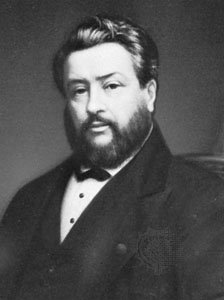The plan and purpose of God is also prominent in the New Testament. Jesus saw the events of his life and events in the future as necessarily coming to pass because of the plan of God. Jesus affirmed that God planned not only the large, complex events, such as the fall and destruction of Jerusalem (Luke 21:20-22), but details as well, such as the apostasy of and betrayal of Judas, and the faithfulness of the remaining disciples (Matt. 26:24; Marl 14:21; Luke 22:22; John 17:12; 18:9). The fulfilment of God's plan and Old Testament prophecy is a prominent theme in the writing of Matthew (1:22; 2:15; 23; 4:14; 8:17; 12:17; 13:35; 21:4; 26:56) and John (12:38; 19:24, 28, 36).
While critics may object that some of these prophecies were fulfilled by people who knew about them and may have had a vested interested seeing them fulfilled (e.g., Jesus fulfilled in Psalm 69:21 by saying, "I thirst" [John 19:28]), it is notable that other prophecies were fulfilled by persons who had no desire to fulfil them and probably had no knowledge of them, such as the Roman soldiers in their casting lots for Jesus; garment and not breaking any of his bones.
Even where there was no specific prophecy to be fulfilled, Jesus conveyed a sense of necessity (δεῖ) concerning future events. For example, he said to his disciples,
It is in Paul's writings that the divine plan according to which everything comes to pass is made most explicit. Everything that occurs is by God's choice and in accordance with his will (1 Cor. 12:18; 15:38: Col. 1:19). The very fortunes of nations are determined by him (Acts 17:26). God's redemptive works unfolds in accordance with his intended purpose (Gal. 3:8; 4:4-5).
The choice of individual and nation to be his own and the consequent events are God's sovereign doing (Rom. 9-11). Paul sees himself as having been set apart even before his birth (Gal 1:15). One might well take the image of the potter and the clay, which Paul uses in a specific somewhat narrow reference (Rom. 9:20-23), and see it as expressive of his whole philosophy of history. Paul regards "all things" that happen as part of God's intention for his children (Eph. 1:11-12). Thus Paul says that,
While critics may object that some of these prophecies were fulfilled by people who knew about them and may have had a vested interested seeing them fulfilled (e.g., Jesus fulfilled in Psalm 69:21 by saying, "I thirst" [John 19:28]), it is notable that other prophecies were fulfilled by persons who had no desire to fulfil them and probably had no knowledge of them, such as the Roman soldiers in their casting lots for Jesus; garment and not breaking any of his bones.
Even where there was no specific prophecy to be fulfilled, Jesus conveyed a sense of necessity (δεῖ) concerning future events. For example, he said to his disciples,
- "And when you hear of wars and rumors of wars, do not be alarmed. This must take place, but the end is not yet. . . . And the gospel must first be proclaimed to all nations." Mar. 13:7 (CEV)
- ". . .I must preach the good tidings of the kingdom of God to the other cities also: for therefore was I sent." Luke 4:43 (BBE)
- "Just as Moses lifted up the serpent in the wilderness, so must the Son of Man be lifted up, so that everyone who believes in him may have eternal life." John 3:14-15 (ISV)
- ". . .Did you not know that I must be in my Father's house?" [literally, "in the things of my Father"] Luke 2:49 (CEV)
- "this Jesus, delivered up according to the definite plan and foreknowledge of God, you crucified and killed by the hands of lawless men." Acts 2:23 (CEV)
It is in Paul's writings that the divine plan according to which everything comes to pass is made most explicit. Everything that occurs is by God's choice and in accordance with his will (1 Cor. 12:18; 15:38: Col. 1:19). The very fortunes of nations are determined by him (Acts 17:26). God's redemptive works unfolds in accordance with his intended purpose (Gal. 3:8; 4:4-5).
The choice of individual and nation to be his own and the consequent events are God's sovereign doing (Rom. 9-11). Paul sees himself as having been set apart even before his birth (Gal 1:15). One might well take the image of the potter and the clay, which Paul uses in a specific somewhat narrow reference (Rom. 9:20-23), and see it as expressive of his whole philosophy of history. Paul regards "all things" that happen as part of God's intention for his children (Eph. 1:11-12). Thus Paul says that,
- "And we know that God causes everything to work together for the good of those who love God and are called according to His purpose for them." Rom 8:28 (NLT)





No comments:
Post a Comment
Please leave a comment!